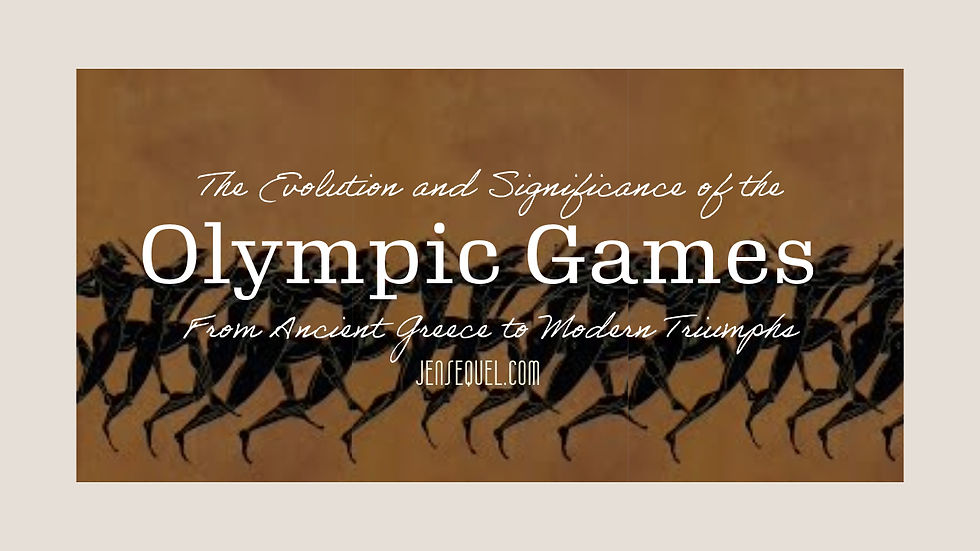Hip Hop Day: Celebrating a Cultural Revolution
- Jen Sequel
- Aug 11, 2024
- 4 min read

Every year on August 11th, the world comes together to celebrate Hip Hop Day, a day dedicated to honoring the music, culture, and influence of hip hop. This date was not chosen at random; it marks the anniversary of a historic event that is widely regarded as the birth of hip hop.
Why August 11th?
August 11th, 1973, is the day when DJ Kool Herc, a Jamaican-American DJ, hosted a back-to-school party in the Bronx, New York. This seemingly ordinary party became legendary when Herc, using two turntables, extended the instrumental breaks of popular songs by looping them, allowing people to dance longer. This technique, known as "breakbeat," is considered the foundation of hip hop music. Herc's innovative approach to music laid the groundwork for the genre and culture that would soon take over the world.
The Origins of Hip Hop
Hip hop emerged in the 1970s in the Bronx, a borough of New York City. It was born out of a need for creative expression among the youth in marginalized communities, many of whom were African American and Latino. The genre was influenced by a blend of earlier music styles, including funk, soul, and reggae, as well as the African tradition of storytelling through rhythm and rhyme.
Hip hop is not just a music genre; it's a cultural movement that encompasses four key elements: DJing (or turntablism), rapping (MCing), breakdancing (b-boying), and graffiti art. These elements were the cornerstones of a new cultural revolution that provided a voice to the voiceless and created a sense of identity and community among its followers.
Legendary Hip Hop Artists
Over the decades, hip hop has produced some of the most iconic and influential artists in music history. DJ Kool Herc may have ignited the spark, but others carried the torch and helped to shape and define the genre. Some of the most legendary hip hop artists include:
Grandmaster Flash and the Furious Five: Pioneers of DJing and MCing, they were instrumental in developing the sound of hip hop in the early 1980s. Their 1982 hit "The Message" is often credited with introducing social commentary into hip hop lyrics.
Run-D.M.C.: This group from Queens, New York, broke down barriers in the mid-1980s by bringing hip hop into the mainstream. Their collaboration with Aerosmith on "Walk This Way" was a groundbreaking fusion of rock and rap.
Tupac Shakur: Often referred to as one of the greatest rappers of all time, Tupac's music explored themes of poverty, violence, and social injustice. His influence extended beyond music, as he became a symbol of resistance and a voice for the oppressed.
The Notorious B.I.G. (Biggie Smalls): Biggie's smooth flow and vivid storytelling made him one of the most respected MCs in hip hop history. His rivalry with Tupac during the East Coast-West Coast feud is one of the most famous and tragic stories in hip hop.
Nas: Known for his poetic lyricism and introspective themes, Nas's debut album "Illmatic" is widely regarded as one of the greatest hip hop albums of all time.
Jay-Z: Rising from the streets of Brooklyn, Jay-Z became not only a rap icon but also a successful entrepreneur. His impact on both hip hop and the business world is unparalleled.
The Impact of Hip Hop on the Music Industry
Hip hop's influence on the music industry is immeasurable. What started as an underground movement in the Bronx has grown into a global phenomenon that transcends music. Hip hop has influenced fashion, language, dance, art, and politics. It has given rise to entire industries and created opportunities for countless artists, producers, and entrepreneurs.
In the music industry, hip hop has revolutionized the way music is produced and consumed. The genre's emphasis on sampling and remixing has led to innovative production techniques and the blending of various musical styles. Hip hop artists have also been at the forefront of using music as a platform for social and political commentary, addressing issues such as racial inequality, police brutality, and poverty.
Today, hip hop is the most popular music genre in the world, dominating charts and streaming platforms. Its global influence can be seen in the rise of hip hop scenes in countries around the world, from the UK to South Korea. The genre continues to evolve, with new artists and subgenres emerging and pushing the boundaries of what hip hop can be.
Hip Hop Day on August 11th is a celebration of a cultural revolution that has shaped the music industry and the world at large. From its humble beginnings in the Bronx to its current status as a global powerhouse, hip hop has provided a voice for the marginalized, inspired creativity, and fostered a sense of community and identity. As we celebrate this day, we honor the pioneers who laid the foundation, the legends who carried the torch, and the new artists who continue to push the genre forward. Hip hop is more than just music—it's a movement that continues to influence and inspire generations.






Comments